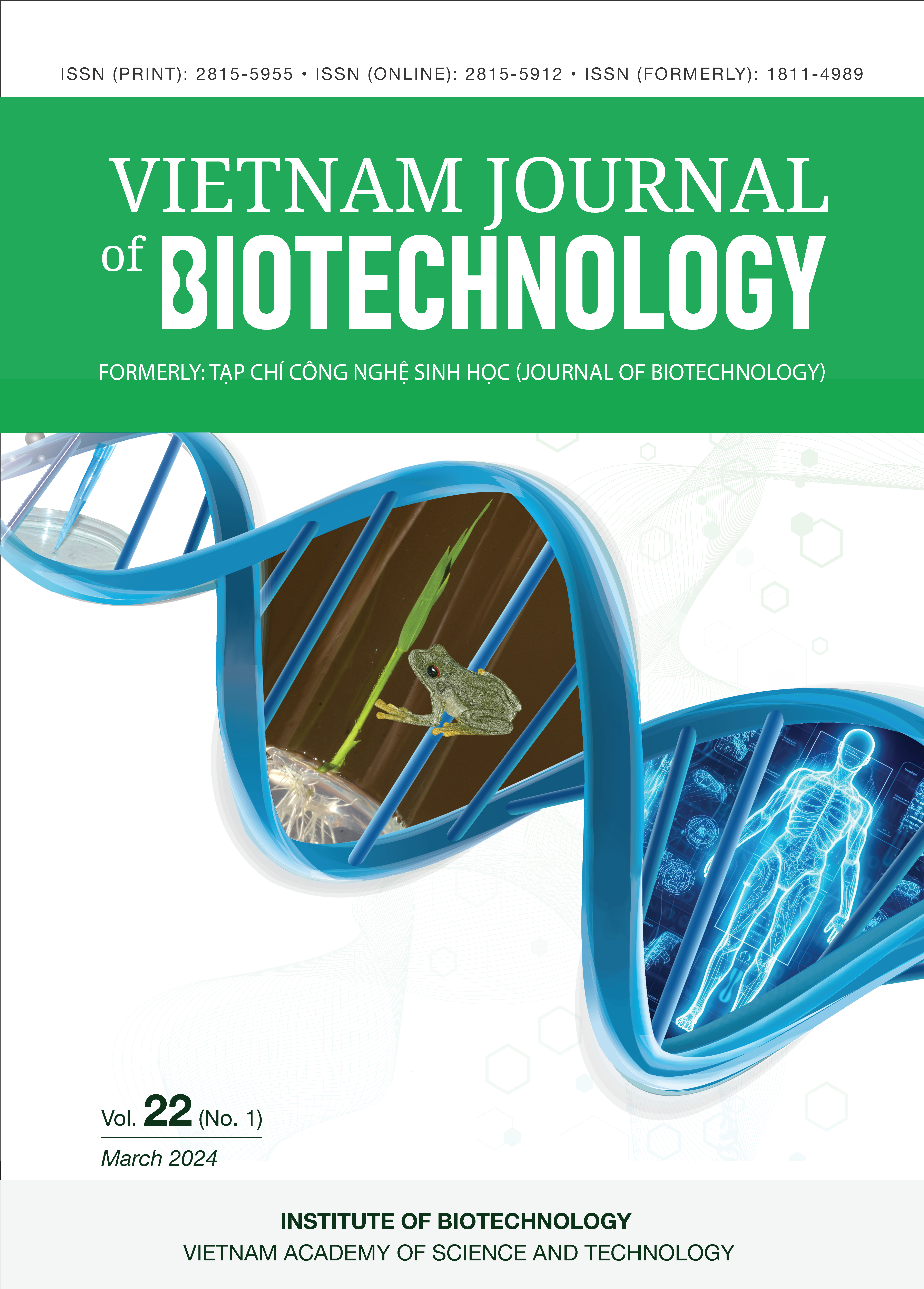Construction and evaluation of the diagnostic value of the recombinant anti-CD3ε antibody in the qualification of T cells by flow cytometry
Author affiliations
DOI:
https://doi.org/10.15625/vjbt-19664Keywords:
recombinant anti-CD3εmAb, CHO- DG44 cells, CD3- positive T cells quantification, flow cytometryAbstract
Quantification of absolute and percentage values for T lymphocyte subsets is a common test for early detection, diagnosis, and treatment of immune-mediated diseases. By using monoclonal antibodies against CD3, CD4, and CD8 conjugated with fluorescent reagents, flow cytometry is a powerful technique to qualify CD3, CD4, and CD8─ positive T cells in the evaluation of primary (congenital) and secondary (acquired) immunodeficiencies such as HIV/AIDS, autoimmune diseases, leukemia, non-Hodgkin lymphoma, Hodgkin lymphoma, … However, almost all monoclonal antibodies used in hospitals around Vietnam are imported from foreign countries, increasing the financial burden on patients. Our study aims to create and evaluate the efficiency of a recombinant anti-CD3ε monoclonal antibody (mAb) obtained from the CHO-DG44 host cell system to identify antigen-specific T cells using flow cytometry. The monoclonal antibodies were purified from culture supernatant and have dimeric structures, a feature that is responsible for mAb activities. The flow cytometry results indicated that the recombinant anti-CD3εmAb was able to accurately qualify the cell-surface antigen in vitro. Furthermore, the mAb developed in this study specifically recognized T cells as opposed to other major human blood cell types such as B cells, NK cells, and monocytes in human peripheral blood. These data collectively suggested that anti-CD3εmAb expressed by CHO- DG44 cells has the potential for further development towards the application of CD3+ T cell quantification in disease diagnosis by using flow cytometry.







